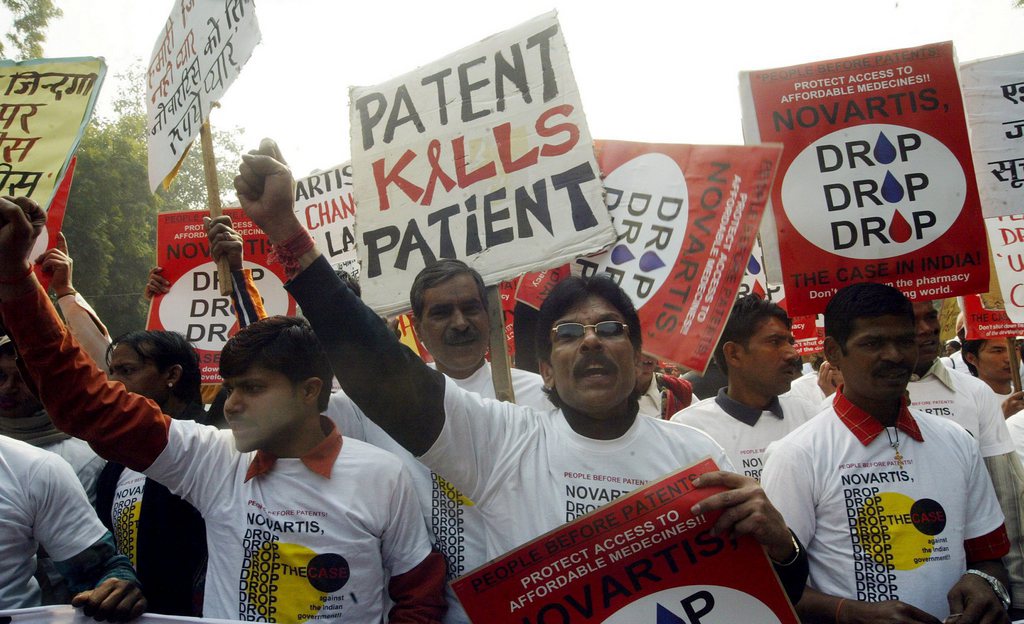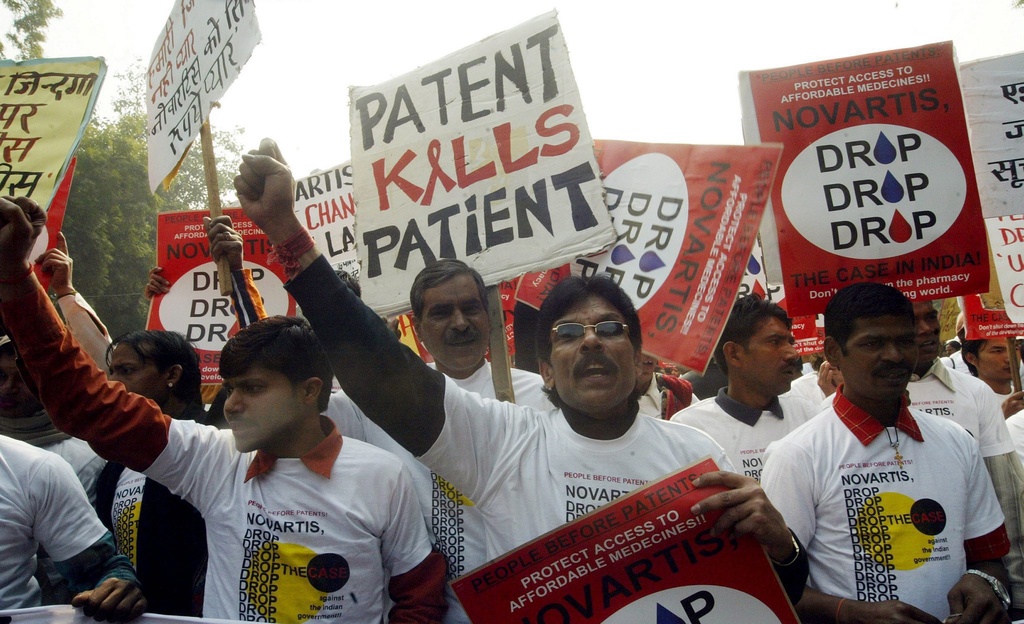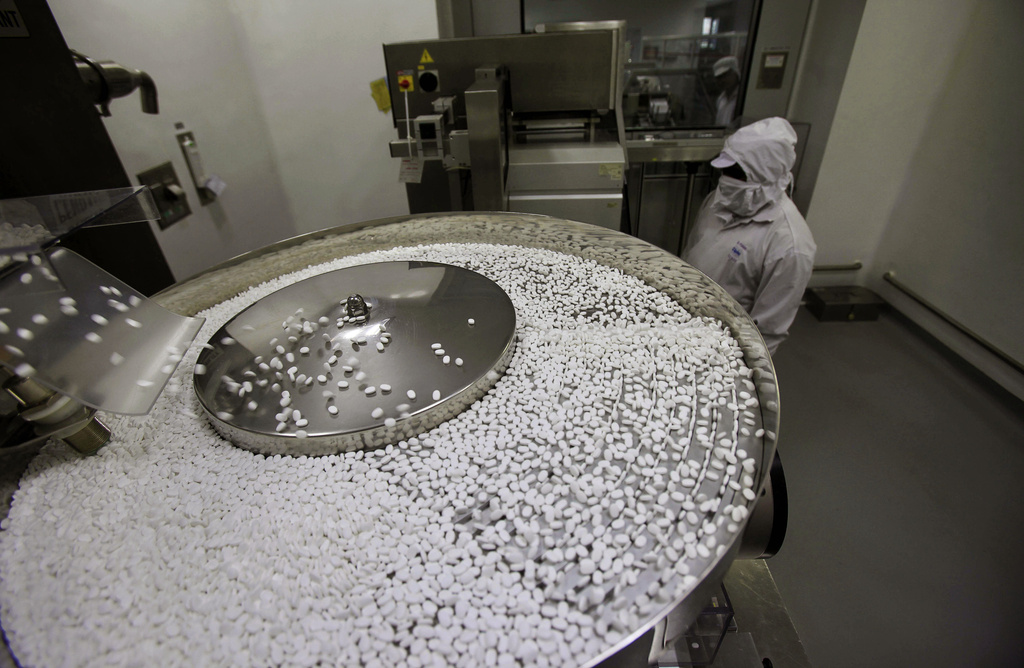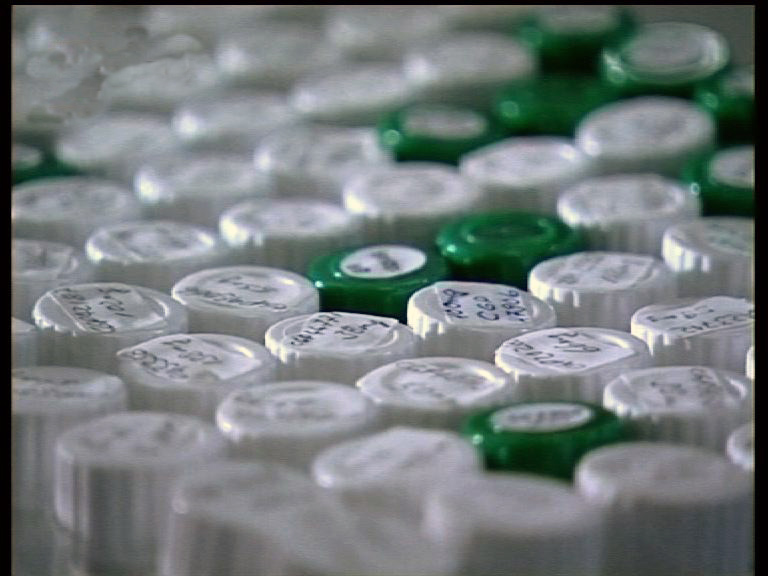Novartis patent case opens in India’s top court

Switzerland’s Novartis is defending its rights to its cancer drug Glivec in a ground-breaking case in India. The ruling will set a precedent on what kind of patents western drugmakers may secure in the second most populated country.
The final hearing, which started on Tuesday at the Supreme Court in New Delhi, is expected to last at least two months. Novartis took the case to the highest court after the drug failed to win an Indian patent on grounds that it was not a new molecule.
India, the world’s leading exporter of generic medicines, introduced drug patenting in 2005 with a provision to exclude protection for modifications to existing compounds. The majority of patent applications in Europe fall into this category. Novartis is challenging this clause of the Indian Patents Act to win a patent for Glivec.
“The Glivec case is about gaining clarity on the application of patent law in India, which is important to the economic future of the country,” Novartis said on its website.
“Novartis challenged the decision not to grant a patent to our life-saving medicine Glivec because we strongly believe safeguarding incentives for innovation through the granting of patents leads to better medicines for patients.”
Novartis claims that more than 95 per cent of all Glivec patients in India receive the medicine free of charge. It also said that it is actively supporting programmes to improve access to medicines, such as partnerships, pricing arrangements and shared contribution models in addition to donation programmes.
Advocacy groups have been accusing Novartis of extending the patent protection on top-selling drugs by making minor changes to existing medicines. Medecins sans Frontières (MSF) is asking Novartis again to drop the case.
“If Novartis wins this ultimate trial, the consequences will be devastating for India’s ability to produce generic drugs; which in turn would have devastating consequences for millions of patients worldwide,” MSF said in a release. It added that India is the “pharmacy of the developing world”, providing four out of five drugs used in Asia, Africa and South America.
Concern about the protection of intellectual property discourages many pharmaceutical companies from investing in India. Sales of generic medicines, which contain the same active ingredient as the original, make up almost the entire $12 billion (SFr11 billion) Indian drug market.
Companies including Germany’s Bayer and Switzerland’s Roche, have lost patent cases over costly cancer drugs in India over the past months. In a landmark decision by the Indian patent authority in March this year, Bayer was forced to grant a license a cancer drug to a local generics manufacturer, because the drug was considered too expensive.
Not gaining the patent would not impact earnings at Switzerland’s largest pharmaceutical company. Indian sales of the cancer drug only account for a small share of Glivec’s $4.7 billion sales last year, and only a fraction of the $58.6 billion in total sales.
At the heart of the argument is imatinib, a compound that was further developed into the global best-seller Glivec. The treatment for chronic myeloid leukemia and some types of gastrointestinal cancer has been patented in 40 countries.

In compliance with the JTI standards
More: SWI swissinfo.ch certified by the Journalism Trust Initiative



You can find an overview of ongoing debates with our journalists here. Please join us!
If you want to start a conversation about a topic raised in this article or want to report factual errors, email us at english@swissinfo.ch.